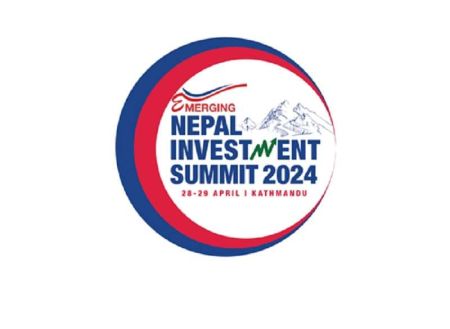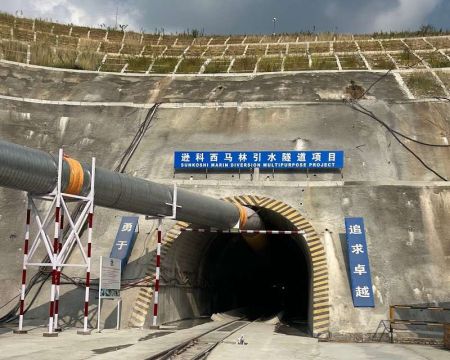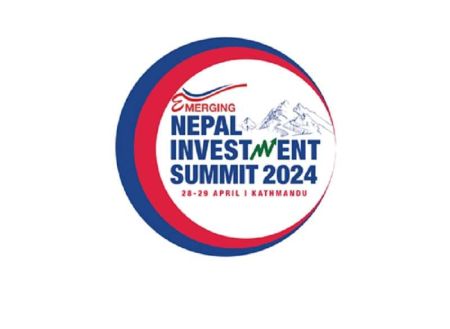By Gaurav Aryal
 During past one decade or so, one of the areas that witnessed a exponential growth in Nepal is the Management Education. Along with the growing demand of duly trained human resource in the field, the management education also thrived as the business in itself. The growing number of banks, financial institutions, corporate houses and increased awareness about the need for modern management expertise to run any commercial venture fueled the growth in management education. Private sector investment in setting up the state-of-the-art institutions and immensly improved quality of education indeed have had multiplier effect in adding attraction to both-investors and students. More than one and half dozen colleges affiliated to three universities - Pokhara University, Purbanchal University and Kathmandu University (KU) - are running either Master in Business Management (MBA) or Executive MBA (EMBA) or both. Though the Tribhuvan University (TU) has not introduced any of these courses, it is running Master in Business Studies (MBS) for decades now. TU plans to introduce an MBA programme in the near future. All these universities also run Bachelor in Business Management (BBA), a four year course while TU has Bachelors in Business Studies (three year course) as well.
During past one decade or so, one of the areas that witnessed a exponential growth in Nepal is the Management Education. Along with the growing demand of duly trained human resource in the field, the management education also thrived as the business in itself. The growing number of banks, financial institutions, corporate houses and increased awareness about the need for modern management expertise to run any commercial venture fueled the growth in management education. Private sector investment in setting up the state-of-the-art institutions and immensly improved quality of education indeed have had multiplier effect in adding attraction to both-investors and students. More than one and half dozen colleges affiliated to three universities - Pokhara University, Purbanchal University and Kathmandu University (KU) - are running either Master in Business Management (MBA) or Executive MBA (EMBA) or both. Though the Tribhuvan University (TU) has not introduced any of these courses, it is running Master in Business Studies (MBS) for decades now. TU plans to introduce an MBA programme in the near future. All these universities also run Bachelor in Business Management (BBA), a four year course while TU has Bachelors in Business Studies (three year course) as well. A few years back studying medicine was supposed to be the most prestigious academic pursuit for a whole lot of students and guardians. Today, the market demand, expansion of career prospects in management sector, growing importance of human resources in companies and distinct teaching-learning methodology are luring more students to management education, perhaps, more than in any other discipline. Nepali universities are also working hard to produce quality managers to compete in the market where top-notch managers are still mostly from foreign universities.
The History
Management education began in Nepal in the form of commerce education in 1954 with the establishment of commerce department in government-owned Tri-Chandra College. The college had introduced Intermediate of Commerce (ICom) and Bachelor of Commerce (BCom) programs with 27 and four students respectively. The programme was affiliated to an Indian university till the establishement of Tribhuvan University (TU) in 1959. The following year, in 1960, TU began offering post-graduate programme in commerce called Master in Commerce (MCom) as well.
Dr Bijay KC, the Dean and Professor at South Asian Institute of Management (SAIM), says introduction of National Educational System Plan in 1971 proved a milestone in the evolution of management education in the country. TU set up Institute of Business Administration, Commerce and Public Administration. This institute was renamed as Institute of Management in 1976. It is now called Faculty of Management (FOM).
Nepal National College (later renamed Shankar Dev Campus), Public Commerce College (Kathmandu), Nepal Commerce College (Lalitpur), Thakur Ram College (Birgunj), Mahendra Morang College (Biratnagar) ruled the roost for a long period in the management education of Nepal. Numerous prominent business persons and management gurus were educated in these colleges. These colleges were later brought under the direct control of TU (as TU’s constituent campuses) following the introduction of National Education System Plan of 1971.
That system of complete state control on education was withdrawn in 1979 and TU started granting affiliation to colleges set up by the private sector. However, it was only after 1991 (i.e. after the advent of multi-party democracy) that there was real growth of colleges from the private sector in management as well as in other types of higher education. That was the year when Kathmandu University (KU) was set up. KU set up Management School (called KU School of Management or KUSOM) in August 1993.
That was followed by establishment of Purbanchal University in 1995 and Pokhara University in 1996. Thus, there are four universities in Nepal now providing management education.
These universities are competing to introduce new tools and techniques in management education. For example, MBA with modern teaching-learning methodology and accordingly courses designed at these universities have helped maintain almost global standards in upper-level management education. A new brand of MBA – EMBA has been introduced recently targeting practising managers. This management programme has been introduced in several private colleges affiliated to Pokhara University, Purbanchal University as well as the central college of KU called KU School of Management (KUSOM).
As of 2009, TU’s FOM had 28 constituent colleges and 506 affiliated colleges. The latest entry (August 2011) in the website of Pokhara University shows that it has over ten colleges affiliated to it for different types of management education in the Bachelor’s or Master’s level in addition to its central campus of PU School of Business. Similarly, KU has three colleges affiliated to it for such courses in addition to its central campus KUSOM. Purbanchal University has over 35 constituent or affiliated colleges for such programmes.
These colleges offer such courses as Master of Travel and Tourism Management (MTTM) at the Master’s level in addition to MBA, MBS and EMBA. At the Bachelor’s level, there are other specialised programmes as well in addition to BBS and BBA. The examples are Bachelor in Hotel Management (BHM), Bachelor of Information Management (BIM), Bachelor of Travel and Tourism Management (BTTM), Bachelor of Business Information System (BBIS) and Bachelor of Commerce Studies (BCS).
However, despite such growth in management education in Nepal, a large number of Nepali students are still going abroad for management education. While that shows the growing demand for the higher education in management science, it has lured a number of foreign institutions to set up their campuses in Nepal or forge partnerships with Nepali colleges or universities.
The Growth
Saroj Dhakal, Management Faculty at the recently established CG-CEDEMAS Institute of Management (CGCIM), feels MBA has now become a most sought after brand amongst the ones aspiring to make career in financial or managerial fields. This institute is a joint venture between Nepal’s one of the porominent business houses Chaudhary Group and England’s Centre for Development Management Studies (CEDEMAS).
Colleges offering MBA, EMBA or both degrees
| S. No. | Name of College | Affiliation |
| 1. | Kathmandu University School of Management (KUSOM) | Kathmandu University |
| 2. | Ace Institute of Management | Pokhara University |
| 3. | Apex College | Pokhara University |
| 4. | National Open College (NOC) | Pokhara University |
| 5. | Uniglobe College | Pokhara University |
| 6. | Pokhara University-Faculty of Management Studies | Pokhara University |
| 7. | South Asian Institute of Management (SAIM) | Pokhara University |
| 8. | Kathmandu Don Bosco College | Purbanchal University |
| 9. | Novel Academy | Purbanchal University |
| 10. | Presidency College Of Management Sciences | Purbanchal University |
| 11. | Zenith International College | Purbanchal University |
| 12. | Kantipur Hotel Management & Interior Design College | Purbanchal University |
| 13. | DAV College | Purbanchal University |
| 14. | Topper Management College | Purbanchal University |
| 15. | White House Graduate School of Management | Purbanchal University |
| 16. | Campion Kathmandu College | Purbanchal University |
| 17. | Birganj Public College, Birgunj | Purbanchal University |
| 18. | Maharaja Agrasen College of Management, Birgunj | Purbanchal University |
| 19. | Management Campus, Biratnagar | Purbanchal University |
| 20. | Nepal Bebasthapan (Sang) College | Purbanchal University |
| 21. | King's College | International American University (USA) |
| 22. | Presidential Business School | International American University (USA) |
| 23. | Nova International College | International American University (USA) |
| 24. | Lord Buddha Education Foundation (LBEF) | Sikkim Manipal University (India) |
| 25. | International Center for Academic College of Distance Education & Online Studies(ICA) | Indira Gandhi National Open University (IGNOU) (India) |
| 26. | Nepal Information Technology | Indira Gandhi National Open University (IGNOU) (India) |
| 27. | Institute of Banking & Management Studies | Bharathiar University (India) |
| 28. | KFA Business School | Vinayaka Missions University (India) |
Apart from the banking and financial system, the demand for professional managers is equally strong in other sectors like tourism and hospitality, energy, agriculture, public sector and others.
As the reasons for growing attraction and development of management education Dr Bijay KC lists development in infrastructure over one-and-a-half decades, change in the trade and occupational patterns in Nepal, growth in media, information technology and development of financial sector, among others. MBA and EMBA graduates are more in demand in the private sector than in the government. KC feels that globalisation and liberalisation have spurted the demand for quality managers.
Prof Dr Geeta Pradhan, Dean at Faculty of Management Studies at Pokhara University, says “The growth of banks and corporate houses has definitely added attraction to management studies in the country. Similarly, MBA teaching methods has several in-built practical approaches with internships, project works and case studies.†She thinks such approach of teaching-learning methodology produces graduates that are competitive in the work environment and turn out to be capable managers. She added, “Managers are required in every field – hospitals to corporate houses. This has created the demand for management graduates.â€
However, Prof Dr Dev Raj Adhikari, Head, Central Department of Management, Tribhuvan University, says that the current growth is not of the actual business schools but in the business studies. He gives credit for this to leading four universities for the growth. He says, the number of students and resource persons is growing along with the demand for competitive human resources in the market that is also growing. Adhikari says, “Management education has improved in terms of both quality and quantity.â€
Student Psyche
MBA students are often tagged as job creators in foreign universities for their attitude summarised as: “We don’t seek job. We create jobs.†However, that attitude is not so common among Nepali students. Pradhan says, “Students are not sufficiently eager and positive towards setting up their own business. When I encourage my students about coming up with such ideas, I don’t see enthusiasm in them. I think they are quite lazy. Working in a bank is considered prestigious while setting up a farm by an educated person is not given respect in our society.â€
Adhikari says, “More than 95 per cent students are job seekers.†He says it is engraved in our culture to search for jobs rather than create one by taking risk of being an entrepreneur. However, he shares some examples of his students who are willing to take up an entrepreneur’s career. “Some MBA graduates have established their own cooperatives and finance companies, which is quite positive.â€
Dr Subas KC, Dean of KUSOM, says that most of the students in his colleges are from well-off families and they prefer easy desk jobs in banks rather than hard work, of setting up companies and being an entrepreneur.
Social psyche, parent’s expectation, socialisation and schooling are blamed for this mentality of job seekers rather than job creators. In fact, MBA courses are not designed to produce graduates who seek jobs but it is designed to produce managers and entrepreneurs. Risk taking attitude is said to be missing among students and aspiring entrepreneurs.
Dhakal however points out that the level of risks to be shouldered in our society is higher than in other comparable countries including in the immediate neighbourhood. Lack of security, extortions and unfavourable investment environment are driving away graduates from setting up their own business, he argues. Julie Peters, Project Director CGCIM, says her college provides incentive to students with best ideas to set up their own business at the end of their studies to promote entrepreneurship.
Curriculum
Management course covers a wide range of disciplines with focus on marketing, human resource management, organisational behaviour, and strategic management among others. Apart from these, mathematics, psychology, sociology, philosophy and economics are taught in the classrooms to the graduate students. These courses expect students to understand and manage the literally all operational aspects of the organisation. Management studies enhance the managerial skills by sharing of ideas, healthy discussions and project works, say experts.
Adhikari, who is also the President of Nepalese Academy of Management, said MBA course is designed to understand the changing perspectives in the business. MBA graduates are expected to understand new definitions and programmes, think strategically, make decisions and have a practical approach to any problem. The aspects make them expert managers and business leaders.
Number of Management Colleges
| Courses | Tribhuvan University | Pokhara University | Purbanchal University | Kathmandu University |
| BBS | 533 | NA | NA | NA |
| BBA | 18 | 35 | 23 | 4 |
| MBS | 45 in operation out of 90 | NA | NA | NA |
| MBA | NA | 6 | 12 | 1 |
| EMBA | NA | 1 | 3 | 1 |
Adhikari shared, “General Motors of USA has devised three ‘Ts’ concept for its human resources - technology, talent and transformation. We need MBA graduates for such transformations.†He adds that MBA course in Nepal is devised to produce capable leaders who can understand and cope up with new advancements and plan, organise and execute accordingly. “MBA is not introduced only for the sake of MBA. It was introduced to support the emerging economy by developing such human resources that can meet the requirements either through a job or entrepreneurship,†he said talking about TU’s management programmes.
Scholars accept that the master’s level curricula on management of Nepali universities are that of the international standards. However, they often question about the way it is delivered to students. Dr Bijay KC said, “The system we follow is more or less the same as in foreign universities. Many universities have accepted the credits our students have achieved primarily due to the courses we teach. Semester system, alphabetical grading evaluation, standard text books used here are similar to western system. In some cases, students may have to take some test/examination which, I think, is normal practice everywhere for any foreign student.â€
Professors think that the main gap is in the teaching-learning methods. KC explains, universities have the same curricula that cover human resource, finance, marketing, organisational behavior, economics, quantitative techniques, strategy, environment and management information system with more or less similar contents.
Adhikari and KC share the similar view that most important is the treatment of the course and its delivery in the classroom, the quality of faculty, the pedagogy used and practical exposure that the students gain during the course.
Teaching-Learning Methodology
The classes of TU MBS are mostly based on the lecture method. However, the colleges under other universities have adopted more practical and participatory methodology to teach in MBA level. These days, traditional teaching-learning method based on lecture is deemed obsolete for any discipline. For management studies, active participation of students in group work and more practical approach, along with observatory methods are considered appropriate. In an MBA class, teacher and students challenge statements, attack and defend ideas. Inclusion of other approaches plays an important role in the learning process.
Adhikari says the central department of management is forced to adopt the traditional method of lecture as they have a huge number of students – around 200 in a single class. He says this simply makes impossible to adopt the other style such as group discussions, presentations, case studies, etc.
Peters of CGCIM opines, “Purely academic approach will not work. The MBA course must take an approach of looking at company case study and the actual issues in that company and how they address those issues. Theories may come later. Theory is something managers already know from their experience but they don’t realise that they know.†Dhakal from the same institute argues that for a class to be participatory and active, students too must have some kind of exposure and experience. “But Nepali students are straight out of the undergraduate colleges, so the teaching methodology is confined to theories alone,†he said. Internationally, students can enrol into MBA course only after practical experience of a couple of years as a manager.
An appropriately designed MBA curriculum demands for more participation, personality development and attitude development. So, the classroom must be synchronised accordingly. After graduation, students enter the job market. So, the colleges must be producing graduates who can face the real working environment. Adhikari believes, “Teaching-learning methodology plays a pivotal role in bridging the gap between classroom and workplace. Such environment in the class must be ensured so that they can adapt to the work environment the very next day.â€
Some of the business schools have tried to revolutionise the classrooms. They have introduced the concept of dual faculty in a class. Along with an academician, a professional contributor takes a class. Academician deals with the theory while the professional contributor shares his supportive working and real-life experiences. Such professional may be a Chief Executive Officer or Human Resource Manager of a bank or a corporate house.
Most graduate schools of management implement project works, participatory techniques, encourage team work, case studies and field visits and some invite visiting faculties from foreign universities. Similarly, games, participatory techniques and decision making opportunities are frequently practised in graduate schools.
International Recognition
The validity of degrees from Nepali universities is often questioned in foreign universities, mostly in the US and Europe. The courses adopted here, teaching method, curriculum, assessment criteria are mostly blamed for the failure of giving equal recognition to our degrees. Nepali master’s degree holders from any university mandatorily have to take up some kind of foundation course or additional credit hours in those foreign universities for them to get recognised as MBAs for employment and further degrees. Moreover, the competency of our colleges and students with the international counterparts can also be often questionable. Experts believe our universities and management institutes cannot be compared to the quality being offered by some universities and institutes in India and the US. However, we have been successful to devise the curriculum that is at par with the international quality for MBA as well as BBA.
In case of MBA, a student requires to meet certain requirements in USA to get enrolled. Unlike here, a student must have two years of work experience and must appear in the GMAT test before admission. Adhikari points these as some of the reasons why our degrees are not directly recognised internationally. However he claimed, “Although there is no direct recognition, our education is not derecognised anywhere in the world. After meeting some of their criteria like additional courses and credit hours, our degrees are largely recognised.â€
One of the reasons Nepali young generation prefers foreign or international degrees to pursue MBA is the issue of recognition of our degrees.
Foreign Affiliation
A number of Nepali institutes and colleges have now presented an option to acquire foreign degrees while being within the country. However, most of these colleges are centred in the capital city Kathmandu only. It is not only the Nepali colleges that are willing to bring in foreign affiliations, but also foreign universities are interested to have Nepali affiliates. The reason is the attraction of Nepali students for international degrees and thus the potential market for those colleges.
CGCIM is the latest institute to offer post-graduate diploma affiliated to Centre for Development Management Studies (CEDEMAS), UK. Dhakal of CGCIM says that the institute was established with the idea to provide teaching in Nepal by foreigner professors. He said, “This is the concept of providing a world-class degree from Nepal. Instead of students going abroad, professors come here to teach and the cost is relatively very small for the students.â€
Similarly, colleges like KFA, Institute of Banking & Management Studies, Lord Buddha Education Foundation and some other are affiliated with Indian universities. King’s College, Presidential Business School, Nova International College are affiliated to International American University, USA.
However, the quality of the affiliated university is also questioned by professionals in management and business studies. KC of KUSOM said, “Universities that Nepali colleges are affiliated to are not much heard-of. Such co-operations will not contribute much to the development of management studies. It will be really praiseworthy if colleges can bring in affiliations from top universities like Harvard, Oxford or any other well-known universities or even Indian Institute of Management.â€
Although the trend of getting affiliation with foreign university is increasing, the government universities are not feeling any threat. Adhikari of TU said, “Nepali universities are in the forefront on the basis of competition and curriculum. We have much better course design that is customised with Nepali culture, system, economy, situation, need and expectation of the market.†Most of the foreign affiliations are based on the distance learning mode.
Sponsorship
Funding students for business and management studies in Nepali college is not much practised by corporate houses. However, some corporate houses have financed a few students in some leading colleges. Apart from that there is also a trend to send the employees of the corporates to Indian colleges and institutes.
Professors do not think that corporate houses are sending students abroad due to the crisis of trust on Nepali colleges. They believe it must be because of some extraordinary qualities that they cannot find in Nepali colleges but see in foreign ones.
However Adhikari says, “Corporate houses are not investing in HR for academic programmes. I have not found a single student sponsored by corporate houses.†Even in EMBA, which is meant for working managers, students are studying under self-financing. According to Adhikari, in other countries, EMBA students are compulsorily sponsored by employing organisations.
EMBA
EMBA is the course designed for working professionals who want to improve their leadership and management skills. It is relatively a new course introduced in Nepal. This programme is said to help managers learn, grow, and change in their career while working. It is the only post-experience management degree as the MBA here does not need any prior work experience.
EMBA is a two years course based on semester or trimester system. The course aims to enrich both theoretical and practical knowledge. The course requires being changed and updated to keep up with pace of the evolution in the market. Students of EMBA believe it helps to tackle the challenges they face in managerial profession that keep on arising at work. The course content of EMBA is quite similar to that of MBA with more priority on the practical aspects. EMBA colleges adopt case study, participative method, group discussions, presentations, field visits, project works as their common methods of teaching-learning, supported by lectures.
Three universities – KU, Purbanchal and Pokhara University – are offering EMBA courses. KU has it in its own campus – KUSOM while Pokhara is offering it in its central campus as well as affiliated colleges and PU is providing it through its affiliates. Assessment criteria applied in these universities is a mixed bag of practical and theoretical written exams. Moreover, most colleges have implemented the overall performance evaluation for the grading system that is usually alphabetical.
Career Prospects and Recruitments
Management and business graduates opt for career in the financial sector which is at present the major job market in Nepal’s formal sector. Students do not much prioritise other sectors than the financial institutions as their career area. Only a few students take the path of self-employment and job-creation through entrepreneurship.
Joint venture companies are also becoming the target areas of MBA graduates for jobs. Meanwhile it is expected that the service sector, which is growing fast, will certainly attract management graduates. KUSOM has its own employment cell to coordinate job placements. Ace Institute of Management too has similar kind of on-campus and off-campus placement mechanism. Dr Subas KC said that students used to be hired by well-known corporate houses in bulk when KUSOM was the only college to offer MBA. However, bulk hiring is not much practised now, companies still reach the college searching for suitable MBAs. Apart from students searching for jobs, companies too come searching for their probable employees.
Although it is not so difficult to secure a job after MBA, the facilities, working environment and remuneration are quite low compared to their qualification. Dr Geeta Pradhan accepts that management graduates are not getting the pay in Nepal that they deserve.
In our market, performance-based pay is less in practice. The flat industrial pay scale is common. Although pay is determined by several factors like economy, industrialisation, market, country’s status, person’s productivity and efficiency, it is believed that most appropriate pay system is performance-based, that is what exactly is missing here in Nepal.
The Future
Nepal being a growing economy, it is certain that the need for professional managers will grow in almost every sector. With the creation of job and growth of market, management graduates will be demanded by both private and public sectors. There are sectors like hydropower might just gradually open up as attractive jobs for new graduates The job market that is confined to the banking sector is certain to expand with more joint ventures coming, growth of service sector, more industries and growth of market.
That will lead to more demand for management graduates and management schools that produce top-notch managers. The colleges’ changing trend shows that they will be able to manage to cater to the demands of the market and time. For that, the teaching-learning method has to change for the better. Similarly, the research practice that is missing among the professors must be developed. Rather than studying just what is happening in the outside world, management schools must be capable to address the evolving Nepali market realities. Without researches by the universities and professors that is almost impossible to do.
Moreover, MBA colleges are blamed for utter commercialisation. To revolutionise the management studies, they require to rise above the worries of profit and loss and dedicate themselves to bring in professional management education.
Experts opine that the concept of business school in true sense of the term is yet to come to Nepal. Business schools are more autonomous with definite vision, mission, and goals and operate accordingly. Adhikari says that such schools have distinct identity and existence. “TU is planning to develop the concept of business school. The only question is the extent of autonomy.†He thinks that MBA colleges are coming just for the sake of money without caring to meet their social responsibilities. The courses and academic studies must address the current needs of the country. “Business schools just with the aim to get students for the sake of business will not sustain in the future. They must take ahead business education with national and international perspectives in mind and by charting out clear vision, mission and leadership,†he suggests.
* Alumni Speak *
Sujan Raja Shrestha received an MBA degree from Kathmandu University School of Management (KUSOM) in 2000. Currently a Management Consultant with Smart Food & Snacks Pvt Ltd, he also manages his own business ventures – Sovereign Education Network and Barahi Eco Farming Company.
Having started his professional career as an employee in various companies, he has come full circle in his decade-long professional journey. He says, “I have learned much and had the opportunity to implement management skills over the years.†Shrestha takes pride in having reached the companies he worked with (Himalayan Snacks, Smart Food etc), to new heights. He emphasises that a corporate entity’s success is the result of team work to a large extent. And almost in the same breath, he doesn’t forget to remind, “To manage and mobilise a team well enough to obtain maximum output, we require excellent management skills.†He adds that these skills can be learnt and it certainly helps having a management education.
Shrestha believes that one must not pursue management education, particularly an MBA degree, only to find better employment or to get a promotion. “The knowledge a student gathers while studying management builds his/her analytical skills better than ever before and pays dividends over a long period of time,†he explains. He opines that a competent management education helps students make more informed decisions with a greater probability of success.
A firm believer of blending theory and practice in management education, he expresses confidence that having successfully completed their MBA programme, the students can choose any business or profession they have their heart for and want to excel at. Shrestha hopes that most management graduates will ultimately turn employers rather than remaining employees for life. “I look forward to the current crop of MBAs to turn entrepreneur after getting a few years experience so that they can create jobs for others and become more productive and constructive,†he concludes on an optimistic note.
Subodh Sharma Sigdel completed his MBA (Finance) from Nepal Commerce Campus, Tribhuvan University in 2000. He also attained an additional degree with an MSc in International Banking and Finance (IBF) from University of Greenwich, London in 2010. He is currently the Chief Executive Officer of CDS and Clearing Limited.
Sigdel was in the early phase of his banking career when he completed his MBA in 2000. The qualification helped him become a good leader and taught him skills related to conflict management, team motivation, plans and programmes preparation, effective communication and overall managerial acumen. After working in the banking and financial sector for more than nine years, he realised the need to get another degree that specialised in his working arena. Hence, he opted to obtain a degree in International Banking and Finance from the University of Greenwich in London. “This degree has given me an excellent opportunity towards shaping my career,†he observes. Meanwhile, Sigdel also ran a trading institute where he trained commodity and stock investors about investing money in the market. He has been recently appointed the CEO of the first ever CDS company of Nepal, CDS and Clearing Limited which is an integral part of the capital market. “Studying subjects like International Capital Market and Financial Trading Techniques immensely helped me in bagging this coveted position. Besides, the IBF degree helped me with my policy making role and supervisory activities,†he reiterates. He credits his MBA (Finance) degree for building his career while being grateful to the MSc (IBF) qualification for shaping his career in a better direction.
“Management education has become extremely important for students aspiring for a career in management,†Sigdel asserts. He suggests that students should pursue a management degree because the market holds enormous opportunities for trained professionals. He adds that management career, today, is not limited to the banking and financial sector only. “Career choices for management graduates are widening these days with new companies like Central Depository System, Commodity Exchanges, Credit Rating Agency, Mutual Funds and the concept of working as Commodity and Stock Trading Members have emerged in our economy,†he points out. Since these companies demand huge workforce, Sigdel advises students to attain relevant management education and fashion successful managerial careers for themselves.






















